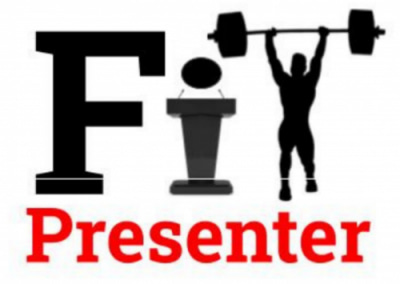Do I really need a speaking coach?
There’s only one reason why you don't need a public speaking coach. You have nothing to say. If you have no stories to tell, no experiences to share, no message for the world, then you don’t need a speaking coach. You don’t have a business to promote or a family legacy to uphold. Next time everyone gathers for a wedding or funeral, pass the microphone to someone else. You deem thyself unworthy. You have one shot to make an impression on upper management? Meh. Mom and Dad let you live rent-free, who needs professional advancement?
You might have one more reason not to hire a speaking coach. “I already know all about public speaking.” No you don’t. Your favorite word is “Um.” You talk to your own slides and ignore your audience. You give them the voyeuristic thrill of watching you do it. You equate formal with professional and believe that a personality-free presentation is the pinnacle of professionalism. You check in with weak questions like “Does that make sense?” and believe them when they say yes. You lead off with a ton of your own credentials, expecting the audience to care. You watch ted talks (lowercase letters intentional) before your Tinder date comes over for Netflix and chill, and that gives you all the expertise that you need. You probably keep Gary Vanderadlkgjdgkljf’s latest paperback opus as evidence that you are too good for Harvard Business School.
There’s only one reason why you don't need a public speaking coach. You have nothing to say.
Still here?
You are still reading this either because you fit the description above and can’t wait to torch me in the comments section (please do), or you are as fed up as I am with the egos that dominate the stage. You want your turn behind the lectern, but you’re not sure that you have the skills. A qualified speaking coach will help you build those skills. In this article we step away from the gym floor and look at the best criteria for choosing a public speaking coach.

The speaking industry, much like most of the business coaching industry, is a demolition derby of self-congratulations. As self-effacing humor builds credibility as a speaker, modesty goes a long way for a speaking coach. You want a coach who will not judge you or enforce a pecking order. The coach is there not to impose superiority, but to offer a well-trained outside perspective.
On the FIT Presenter home page, you can see my appearance on the Love to Move podcast. Watch for the speaking tips, stay for the story of VonDufus the German shepherd. The only guest on that podcast who has more views than I do is also a speaking coach. Watch that episode as well, and see the difference. He will treat you to a full hour of reasons why he is superior to you as a human being. Coaches like him will dominate you as a client and expect you to earn their approval.
Systems, processes, and gimmicks
A good speaking coach should have a system, but not a gimmick. What’s the difference? A coach uses a system to ask the right questions, develop your material in the right sequence, and apply the same quality checks as you progress. As I type this I can hear Craig Valentine asking me, “How can we check in with the audience here?” and “Try putting that in dialogue.” He drives me crazy with his processes, but he’s right. You can apply the same system once the coaching relationship is over. When talking to a potential coach, ask if they use any standardized systems or processes. Make sure the system has enough leeway that you are still getting a unique experience. A good answer will tell you if the coach has a plan for you, or if they’re just winging it.

A gimmick, on the other hand, has no added value. If a speech coach identifies as a “confidence expert” or a “delivery specialist,” then you are being fed a gimmick. All coaches teach confidence. If a coach focuses solely on delivery and not content development, ask the question posed by the great Patricia Fripp. “Why would I want to perfect the delivery of a poorly crafted, badly written presentation?”
A coach, much like a fitness trainer or anybody else in the helping professions, has a hard time creating a niche. My niche is the fitness industry. Though I don’t limit my work to fitness trainers, FIT Presenter sets me apart from other speaking coaches without presuming superiority. Take caution if you see a coach who claims to specialize in a skill that everybody teaches. You can find more convincing in the blog post about executive coaches.
Top down vs bottom up
Sometimes these gimmicks come disguised as progress. For all of the “ists” and “isms” that I have been called over recent years, the one label that I embrace is “technophobic.” You can read more about my feelings on artificial intelligence in the Shakespeare article. Some coaches promote technology that doesn’t serve you. Since the beginning of time, speakers have communicated without technology. We use media to amplify or broadcast our voices further, but communication remains from the speaker’s mouth to the listener’s ears. Little has changed in the history of spoken word.

Coaches who favor technology prefer the bottom up method. In analyzing language, a top down method looks at the message and the content, while a bottom up approach focuses on language mechanics. What are you trying to accomplish? A second language speaker might use technology to improve delivery at first, but eventually the focus will shift to the meaning behind the message. The fact that your coach uses AI is not a selling point.
Why fight it?
Too many speaking coaches focus on fighting nervousness more than on developing good content. In fact, if you do an internet search for speaking tips, most of the articles will focus on controlling your nerves. I also said this in a previous article. Being nervous is the best part about public speaking. Get your nerves in check through experience, and then move on. You shouldn’t be paying top dollar for a coach who focuses on something so basic.

Peanut butter and poison ivy
No two speaking occasions are the same. A commencement address is not the same as a wedding toast. A sales presentation is not the same as a sales report. And most importantly, a Toastmasters speech is not a TED Talk. As a Toastmaster, I can tell you that Toastmasters and TED Talks go together like peanut butter and poison ivy.

Allow me to explain one more time why I don’t care for TED (at least this time I used capital letters). At a high school or university near you, an administrator is sitting in an office with no windows, fighting a keyboard war against education. Academic higher-ups insist that the real experts are everybody but the teachers. Those administrative shut-ins are the first to fire off emails saying, “Use the TED Talks.” They have no plan, only the will to undermine the teacher. A teacher who defaults to the TED Talk as a surrogate lesson is probably fighting a terrible hangover. I left my full-time teaching position because teachers get no respect. As a professional speaking coach, I refuse to let the same cyber-commandos ruin yet another industry.
If you find a speaking coach that touts his or her number of TED talks as a selling point, that coach might be pushing a credential that doesn’t help you. The TED format works only for a TED talk. Speakers follow a script, a time constraint that falls down to the second, and a strict set of rules on what they are allowed to say. The live audience is irrelevant to the speaker, as the real audience is watching on TV or on a computer screen. Many Toastmasters have sabotaged their own contest speeches by living out a fantasy of some day telling their life stories while standing on a big red dot.
What are your criteria?
You have already navigated 1300 words in pursuit of the perfect speaking coach. Your guard is up against ego-driven self-service, pointless niches, cliches, and one-size-fits-all speaking strategy. How do you decide? How do you know that you will have the material, development, and the confidence to deliver your message so that your audience will never forget you or your message? This is your chance to teach me. The comments section awaits.















